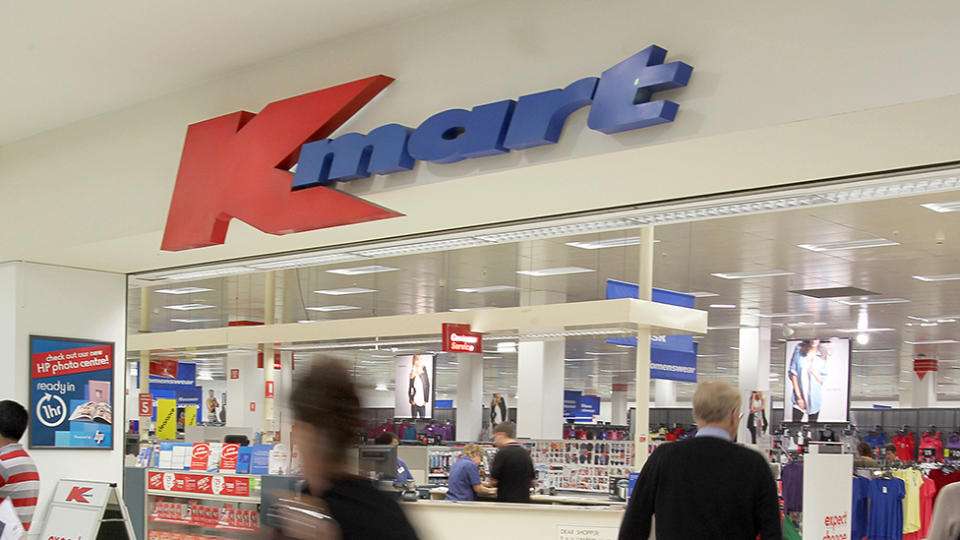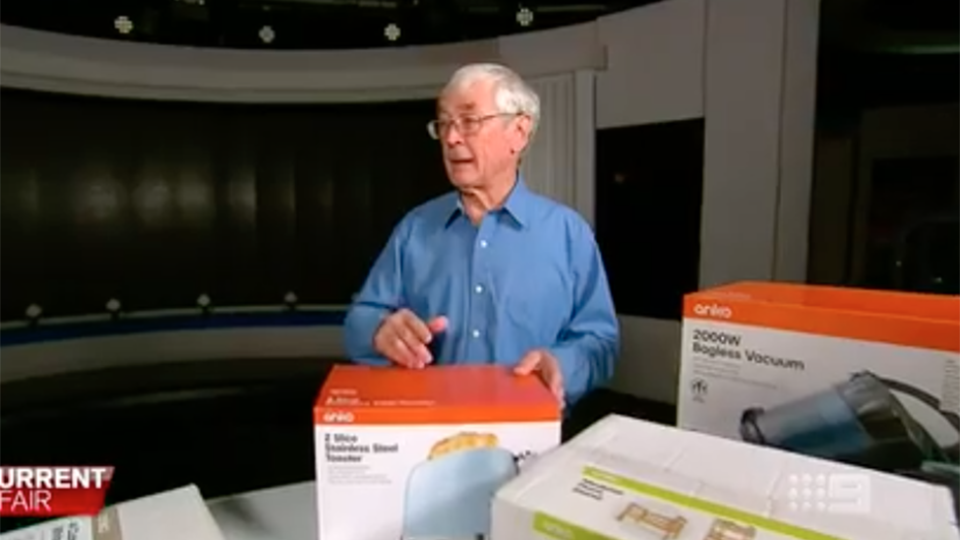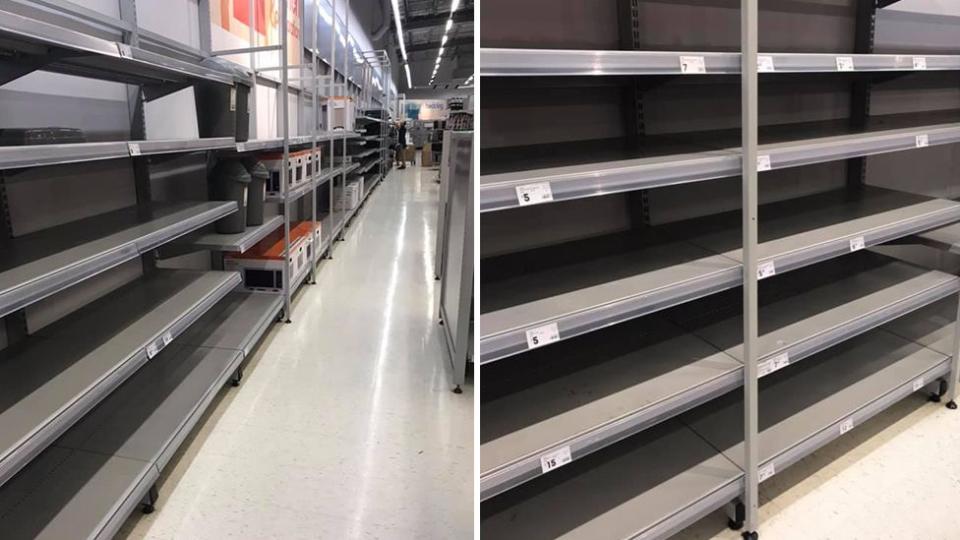The real reason behind Kmart’s empty shelves
Loyal Kmart customers have been sweating for weeks as ongoing supply chain issues see the retailer’s shelves remain empty.
While Kmart has promised to have shelves stocked by the end of July, and cited unusually high demand as the reason behind the shortage, customers and experts alike say the retailer’s dependency on offshore manufacturing is the real reason you’re struggling to get your hands on everything from yoga mats to homewares.

Kmart is famous for its budget alternatives to high-end products, and keeps prices low and quality relatively high by manufacturing most of its brand products in overseas factories, the majority in China.
Now with coronavirus sweeping the globe, Kmart has seen stores wiped clean of those products.
It’s a business decision that experts say means they can’t easily replenish stock, at least not for a while.
Daniel Walton, the National Secretary of the Australian Workers Union told Nine’s A Current Affair that the retailer should use the shortage as an opportunity to invest in Aussie manufacturing jobs.
“We shouldn‘t completely be dependent on one nation to import a lot of cheap goods, and a future manufacturing industry doesn’t have to rely upon cheap labour standards or dodgy working conditions in order to make good things,” he said.

Aussie businessman Dick Smith, a long time proponent of all-Australian products like the ones produced by his own company, reflected on the situation, calling it ‘sad’.
“[The] problem is our labour rates are high, we share the wealth here a lot better, so we have high minimum wages and high wages for factory workers and that means it‘s hard to compete with China where some of them are getting just a few dollars an hour,” he told the program.
Customers clue into supply chain debacle

Its something that consumers had already begun picking up on, taking to social media to share snaps of empty shelves long past other store’s restocks, and to theorise that they are finally paying the price for their favourite cheap goods.
One person wrote they were shocked after their recent visit to the store because of the lack of items on shelves.
“Went to a store yesterday for a browse after a two-month iso. Was gobsmacked at all the empty homewares shelves. Highlights how much stock comes from [overseas].”
“90 per cent of the stuff would be from China and with no freight leaving there they will remain empty for a while I would say,” was one person’s comment.
Kmart has been contacted for comment.
The retailer last responded to the concerns in early June, when they promised the July restock, and gave their explanation for the ongoing shortage.
“We’re experiencing unusually high demand for some of our product categories both instore and online,” they said at the time.
"We expect stock availability to improve soon and to normalise by late July. We appreciate your patience as our teams work hard to deliver the products you need, at the time you need them most."
Where does Kmart manufacturer its goods?
Kmart provides the full list of its factories as part of a commitment to supply chain transparency with consumers.
The retailer has factories in Vietnam, Thailand, Pakistan, Malaysia, Indonesia, India, China, Cambodia and Bangladesh with the vast majority of factories in China.
Despite publishing the locations of its factories, in Feburay 2019 an Oxfam report found that workers in Bangladesh and Vietnam manufacturing for Aussie brands including Kmart were not earning a living wage.
“The investigation has uncovered the widespread payment of poverty wages and the impact this is having on the lives of the workers, mainly women, making the clothes Australians love to wear,” Oxfam Australia chief, Helen Szoke, told The Guardian at the time.
In 2015 Kmart joined 'Action, Collaboration, Transformation' (ACT) an organisation dedicated to raising the wage of workers in disadvantaged communities.
Got a story tip or just want to get in touch? Email us at lifestyle.tips@verizonmedia.com

 Yahoo Lifestyle
Yahoo Lifestyle 



